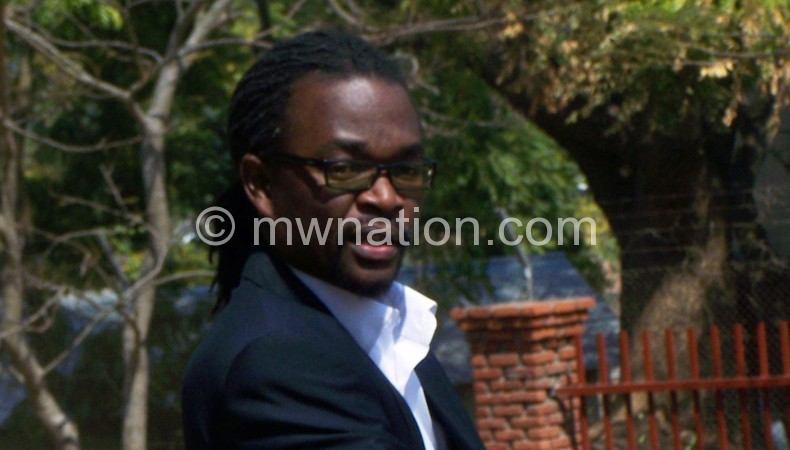‘Crack whip on corrupt judicial officers’
As the Judiciary admits that some of its judicial officers may be embroiled in corrupt practices, a prominent legal expert has proposed that tough new guidelines be introduced to crack the whip on the errant officers.
The proposal, that may give teeth to what some deem as a ‘dormant’ Judicial Service Committee (JSC), is one of the highlights Associate Professor Mwiza Nkhata from the Faculty of Law at Chancellor College made in a 31-page analysis published by the Comparative and International Law Journal of Southern Africa (2018).

The analysis comes after Chief Justice Andrew Nyirenda’s admission recently that public accusations of corruption and misconduct among judges may have substance and can easily compromise the integrity of the Judiciary.
Said Nyirenda, at a public function: “As Judiciary, it will be foolhardy to pretend that we do not have incidents of corruption. We really cannot sit back and think nothing is happening at the institution.
“Surely, we must be concerned about corruption in the judiciary. We must acknowledge that corruption has become a present danger that can easily overshadow the integrity of our Judiciary.”
The admission came a few months after judge president of the Lilongwe registry of the High Court Judge Esmie Chombo exposed corrupt practices involving lawyers and Judicial officers when she wrote the Malawi Law Society (MLS) in January last year, alleging that she had information that some lawyers paid court staff to “misplace or destroy court files to frustrate proceedings,” among other allegations.
In his analysis, Nkhata said the alleged lowering standards in the Judiciary can be enhanced if it could be encouraged to crack the whip on judicial officers involved in the unprofessional practices.
He argues that the absence of clear guidelines and comprehensive legislation to support the constitutional provision, makes the JSC less capable of enforcing discipline in the sector that is crucial in safeguarding democracy and the rule of law in Malawi.
The Constitution, under section 116, establishes the JSC as an institution mandated for the regulation of judicial officers and which shall have such jurisdiction and powers as may be conferred on it by the Constitution or an Act of Parliament.
In terms of section 118 of the Constitution, the JSC is mandated to exercise disciplinary powers over judicial officers. To date, however, the mechanisms for receiving and disciplining judicial officers remain non-existent, according to Nkhata.
“In the absence of special mechanisms for handling disciplinary matters affecting judicial officers, the Public Service Commission Regulations of 1989 have been used to enforce discipline over judicial officers. Needless to point out that these regulations are not suitable for the regulation of judicial officers, and it is doubtful if they are in full consonance with the Constitution,” he argues.
Nkhata points out that the lack of clear discipline mechanisms and procedures was evident through the failed impeachment of three High Court Judges who needed to be punished in 2001.
In a response to our questionnaire, Malawi Law Society (MLS) honorary secretary Martha Kaukonde agreed with Nkhata on the need to have supportive legislation to complement the Constitutional provisions.
“It should be noted that on the face of it, the Constitutional provisions may appear sufficient with regard to appointments of judicial officers. But they are lacking in terms of the disciplinary mandate. There is a reason why the Constitution indicated that there has to be an Act of Parliament to spell out the JSC’s jurisdiction and powers,” he stated.
But Minister of Justice and Constitutional Affairs Samuel Tembenu argued that the Constitutional provisions are clear enough to make the JSC enforce discipline.
“Those provisions are so elaborate and clear and, so far, they have worked well. I am not sure what the Professor [Nkhata] considers to be unclear in those provisions, leading to his call for the promulgation of subsidiary legislation. In the absence of that, it would be difficult for me to justify that call.





